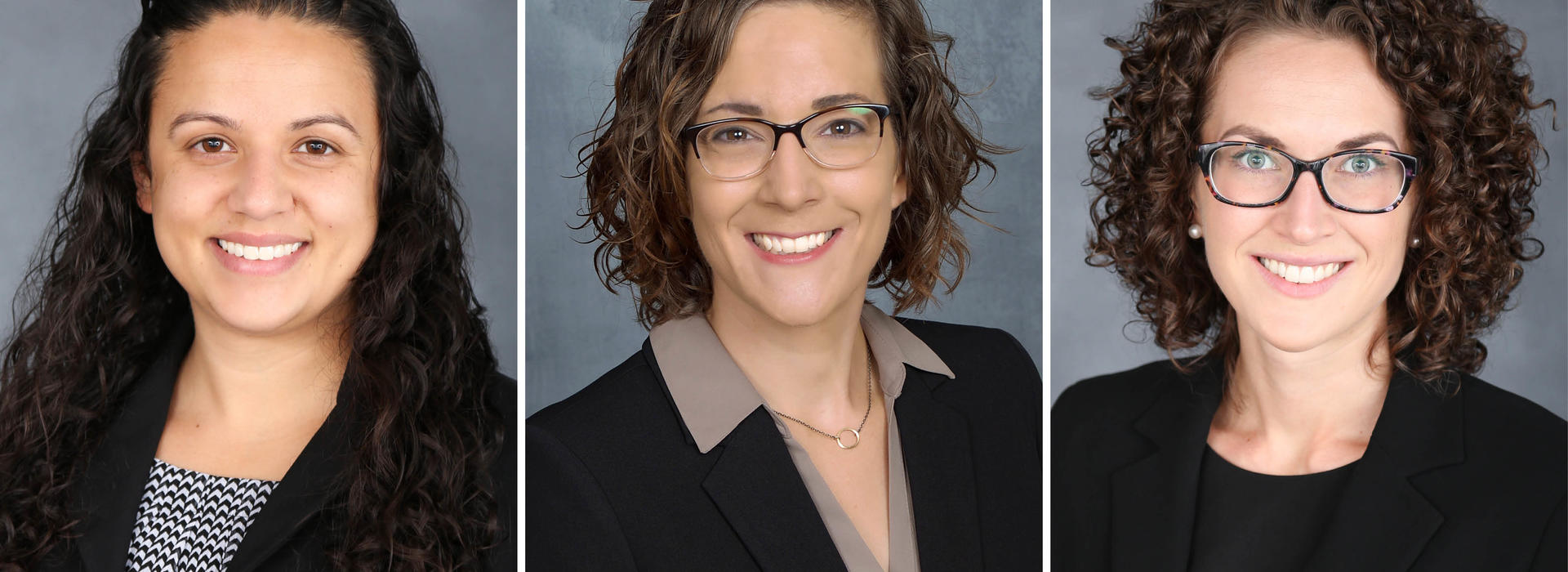
Three U of M Medical Students Advocate for Change in Mental Illness Disclosure Requirements
For University of Minnesota Medical School students, Brianna Engelson, Jennifer Zick, PhD, and Sameena Ahmed-Buehler, their experiences in medical school support the oft-quoted statistic that one in three to four medical students screen positive for depression, but only about 15% seek treatment. Now, they are committed to making a change around the stigma of mental health for healthcare students and professionals.
The three began conducting research to learn more about how student mental health is affected by mental health disclosure requirements in credentialing and licensing. Currently, the Minnesota Board of Medical Practice’s Physicians License Application asks, “Have you within the past five years been advised by your treating physician that you have a mental, physical or emotional condition, which, if untreated, would be likely to impair your ability to practice medicine with reasonable skill and safety?”
“There is a big issue in the wording of this question because they are really asking if you have ever been diagnosed instead of asking if it's under control, or if it’s being taken care of or if this is an undiagnosed issue,” said Dr. Zick, who is finishing up her last year in the Medical School’s MD/PhD graduate program.
“Many students cite the fear of negative repercussions on their careers as a primary reason for not seeking help. While the Medical School has taken important steps toward making more resources available to medical students, this doesn’t solve the problem of having to disclose mental illness on official documentation in the future,” Dr. Zick added.
Because of this, the student trio is now advocating on statewide platforms to remove these barriers in seeking care for mental health.
"We really want everyone to feel safe seeking help if they need it,” Engelson said. "It's important for physicians in practice to model this behavior for trainees, but disclosure requirements can get in the way."
The three attended the Minnesota Academy of Family Physicians (MAFP) House of Delegates meeting in March 2019 and proposed a resolution surrounding this issue in front of 150 physicians. Ahmed-Buehler represented this issue with a three-minute presentation of why they are advocating for change, which then inspired audience members to testify, sharing personal stories about being a practicing physician and having a mental health disorder.
“It gave us goosebumps to listen to these powerful testimonies to further show the importance of this issue,” Dr. Zick said.
Their resolution was unanimously passed by the MAFP House of Delegates, ensuring that the physician organization would work to advocate for changing licensing requirements and provide educational materials for physicians-in-training about the issue.
“While this does not change the law, it means that they now recognize this is an important issue and they are committed to advocating for change,” Dr. Zick said.
A few months later, their submission to and testimony at the Minnesota Medical Association (MMA) Open Issues Forum in September 2019 prompted the organization to make it official policy that the MMA encourages the Minnesota Board of Medical Practice to change health disclosure questions to focus on current function.
“The support for this issue is growing, and we’ll continue working toward a time when credentialing and licensing processes for all healthcare professions focus on current function and people can seek healthcare without fear,” said Ahmed-Buehler.
For now, their first goal is for the Minnesota Board of Medical Practice to focus their disclosure questions on current function as recommended by the Federation of State Medical Boards and the American Medical Association.
To learn more about the trio’s initiatives, read their most recent article in Minnesota Medicine Magazine. If you want to join in on these efforts contact, Brianna Engelson at engel533@umn.edu, Jennifer Zick at zick@umn.edu or Sameena Ahmed-Buehler at ahmed196@umn.edu.